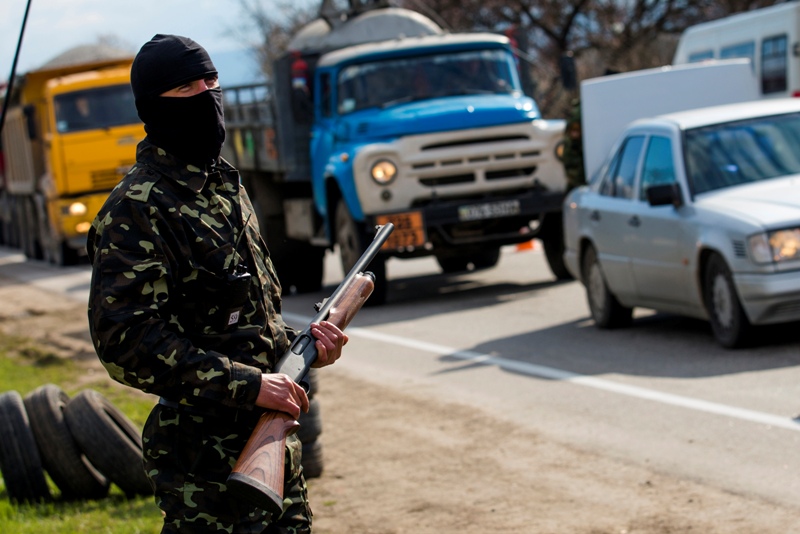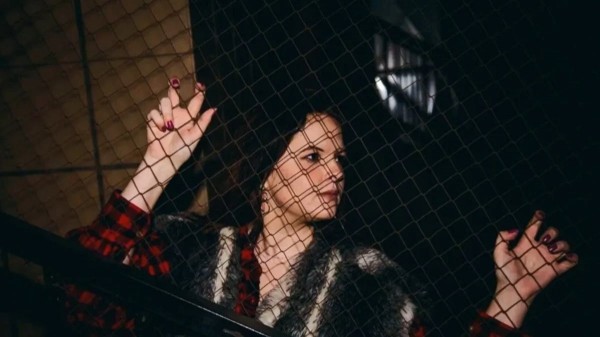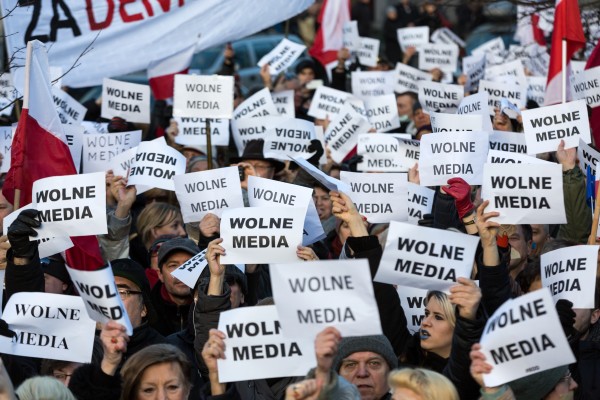The International Press Institute (IPI) today called for an end to violence, harassment, intimidation and other pressure on journalists and media outlets in Ukraine.
IPI Executive Director Alison Bethel McKenzie, in an open letter to authorities in Crimea, urged them to bring to justice those responsible for a number of recent incidents in the region and to end efforts to block media outlets from broadcasting.
She also called for journalists seeking to cover Sunday’s referendum on Crimea’s status to be allowed to do so without restrictions and without regard for their origin or media affiliation.
The upcoming referendum “can hardly be said to represent democracy if violence and fear effectively stifle any semblance of an honest discussion of the issue”, Bethel McKenzie wrote, and she reminded authorities in Crimea that they have “an obligation under the Republic’s Constitution to uphold democracy, the rule of law and human rights”.
She added: “The legitimacy of the actions Crimea takes in determining its future – and the manner in which history will view those actions – depends wholly on the degree to which your government respects democratic values. We therefore urge you to take … steps to uphold those values, particularly the fundamental human right to share and receive information.”
The full text of Bethel McKenzie’s letter appears below.
Organization for Security and Co-operation in Europe (OSCE) Representative on Freedom of the Media Dunja Mijatovic, in statements issued Friday and Saturday following a visit to the region, described the situation in Crimea as a “crisis” in which media freedom was “under siege”. The New York-based Committee to Protect Journalists (CPJ) on Tuesday issued a statement cataloguing a litany of detentions, assaults and threats against journalists in the region and seizures of their equipment. The statement also listed a number of examples of censorship of broadcasters.
Bethel McKenzie today also criticised a demand by Ukraine’s National Television and Radio Broadcasting Council on cable operators to stop carrying signals from a number of Russian state-controlled television channels. According to the BBC, the regulator issued the order on Tuesday in response to a call from Ukraine’s National Security and Defence Council, which said that the Russian channels – which have portrayed Ukraine as a country overrun by “neo-Nazis” and on the brink of chaos and collapse – presented a threat to Ukraine’s “national security”.
“Pressure on media and censorship is unacceptable no matter where it originates – from Simferopol, from Kiev or from Moscow,” Bethel McKenzie said. “Authorities across the region need to do a much better job of respecting media independence and ensuring that citizens enjoy unfettered access to information.”
The Council of Ministers of the Autonomous Republic of Crimea
Simferopol
Autonomous Republic of Crimea
Ukraine
Re: Harassment of journalists in Crimea
Vienna, 13 March, 2014
Dear Members of the Council of Ministers:
On behalf of the Vienna-based International Press Institute (IPI), the world’s oldest global press freedom organisation, I write to express our deep concern over a growing climate of violence, harassment and censorship directed at journalists and media outlets in the Autonomous Republic of Crimea.
In recent weeks, reports have emerged of numerous incidents in which journalists seeking to cover the situation in Crimea have been assaulted or detained by armed, masked men. In many of those cases, the journalists were threatened and forced to hand over their equipment, which has not been returned.
Similarly troubling, the broadcasts of more than a dozen Ukrainian and regional media outlets have been blocked without explanation or dropped by cable providers, and the websites of many media outlets have been targeted with denial-of-service attacks.
These developments have created an atmosphere of lawlessness that severely threatens the work of journalists in Crimea. Moreover, it deprives individuals in Crimea and around the world of the ability to receive information necessary to develop an accurate understanding of the events that shape their lives.
This threat is particularly acute in advance of a referendum on Crimea’s status scheduled for 16 March – a vote that can hardly be said to represent democracy if violence and fear effectively stifle any semblance of an honest discussion of the issue.
As the governing body of the Autonomous Republic of Crimea, the Council of Ministers has an obligation under the Republic’s Constitution to uphold democracy, the rule of law and human rights. With that in mind, we respectfully demand that you take the following, immediate steps:
-Affirm that journalists play a necessary role in democracy and call on individuals in Crimea to respect the right of journalists to report on events in the region free from violence, harassment or intimidation.
-State that any incidents of violence, harassment or intimidation against journalists will not be tolerated and will be punished by law, irrespective of the outcome of the 16 March referendum.
-Identify the perpetrators of all incidents of violence, harassment or intimidation against journalists, and bring those individuals to justice.
-End any efforts to block media outlets from broadcasting or from otherwise disseminating information from or into Crimea.
-Allow journalists to cover the 16 March referendum without restrictions and without regard for their origin or for the media outlet with which they are affiliated.
The legitimacy of the actions Crimea takes in determining its future – and the manner in which history will view those actions – depends wholly on the degree to which your government respects democratic values.
We therefore urge you to take the aforementioned steps to uphold those values, particularly the fundamental human right to share and receive information.
Yours faithfully,
Alison Bethel McKenzie
IPI Executive Director
>> For more information, contact IPI Senior Press Freedom Adviser Steven M. Ellis at +43 (1) 512 90 11 or by e-mail.



